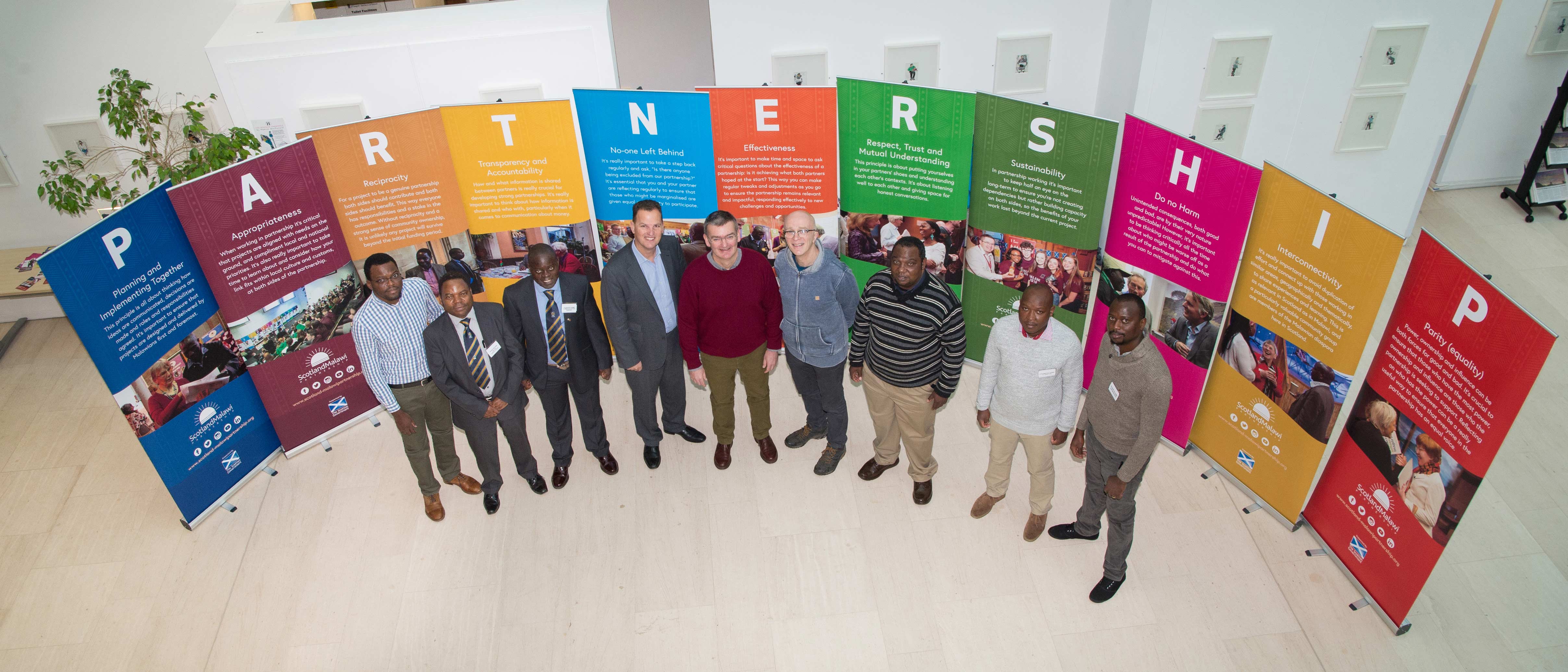Creating sustainable solar energy for the Blantyre-Blantyre Clinical Research Facility
Published: 1 March 2022
The University of Glasgow partnered with Kamuzu University of Health Sciences, Malawi (KUHeS) to install an affordable, reliable and clean power supply.

Malawi is a Low-and Middle-Income country with a high population density and one of the lowest per capita GDPs in the world. Power outages are frequent and reliance on expensive diesel generators and charcoal is not a sustainable energy solution. Malawi is a country that has more than 3000 hours of sunshine each year and therefore a switch to solar energy is reliable, sustainable and positively impacts on the climate emergency in Malawi.
The University and KUHeS partnered with solar power company, African Sun Energy (ASE), to install solar panels. This sustainable and clean energy source supports the newly refurbished Blantyre-Blantyre Research Facility.
Powering world class research
This project has significantly strengthened the overall capacity of the Blantyre-Blantyre Research Facility and the wider KUHeS community.
Access to reliable continuous energy supply has improved the capability of the laboratory as a fully sustainable and a viable facility for world class research. Enabling them to forge new partnerships and host research communities. The Research Facility has received significant interest from large companies looking to collaborate, a reliable continuity of energy supply can now ensure dependable and documented storage facilities for research findings and data.
Main and back up energy supply for the laboratory will be used for biobanking and all analysis equipment required for future projects. In addition, it will power microscopy and computer hubs to support education programmes such as the Glasgow run Diploma in Tropical Medicine and Hygiene (DYM&H) course.
Impacts beyond the campus
The partnerships forged between the University, KUHeS, ASE and the local community has resulted in the provision of online training to 30 Malawian engineers. Of these, six were employed to assist with the installation of the system at KUHeS. In addition, ASE created a post for one of these individuals and recently employed its first full time female solar engineer in Malawi. Malawi now has a ready supply of suitably trained solar installation engineers and new scientists and researchers who have the confidence to engage with the facility and its research outputs.
The project was designed to promote equality, diversity, and inclusion in Malawi, with the team purposefully made up of a wide range of culturally diverse talent. The Director of the solar installation company, Eunice Ntobedzi, is a female African engineer, and her company African Sun Energy seeks to promote a culture of mutual learning and diversity with an emphasis on training female solar power engineers. The vast majority of the participants who were trained online and in solar installation were female and from disadvantaged backgrounds.
Ensuring there is a legacy
This project is an exemplar for clean energy projects at KUHeS and across the region. Whilst installing the solar panels, ASE undertook a full survey of the KUHeS campus with a view to installing more solar panels to power additional campus buildings. The success of the project has increased the likelihood that other new campus buildings, such as the Dental School building planned for 2023, will adopt a clean energy solution and install solar panels.
The University continues to work with ASE on other solar projects with the goal to install solar power to health care clinic sites in rural Malawi. The major success of the initial solar power project has motivated partners in Malawi and in the surrounding Blantyre community to also embrace solar power. ASE’s direct exposure to partners in Scotland and potential new funders has impacted tremendously and they are currently in discussions with the Scottish Government to partner with them in future renewable projects.
Professor Paul Garside, Dean of Global Engagement (Middle East & Africa) and project lead, succinctly summarizes the importance of projects like this. ”It is fantastic to deliver clean energy to an important new clinical research facility developed with our partners at Kamuzu University of Health Sciences in Malawi. A real example of south-south collaboration”.
Key Facts:
- A £63,000 UofG SFC Global Challenges Research Fund grant enabled the installation of clean energy at the Blantyre-Blantyre Research Facility.
- Access to reliable continuous energy supply has improved the capability of the laboratory as a fully sustainable and a viable facility for world class research.
- The project trained 30 Malawian engineers and technicians and resulted in the creation of a full-time post for a Malawian solar engineer.
- This project is aligned with several United Nation Sustainable Development Goals including Affordable & Clean Energy.
First published: 1 March 2022

